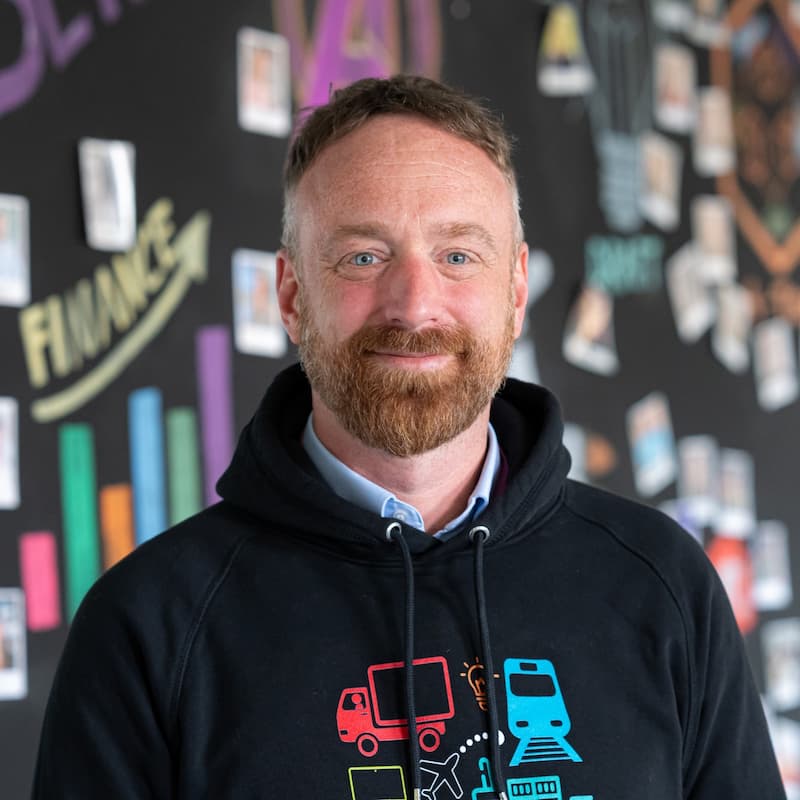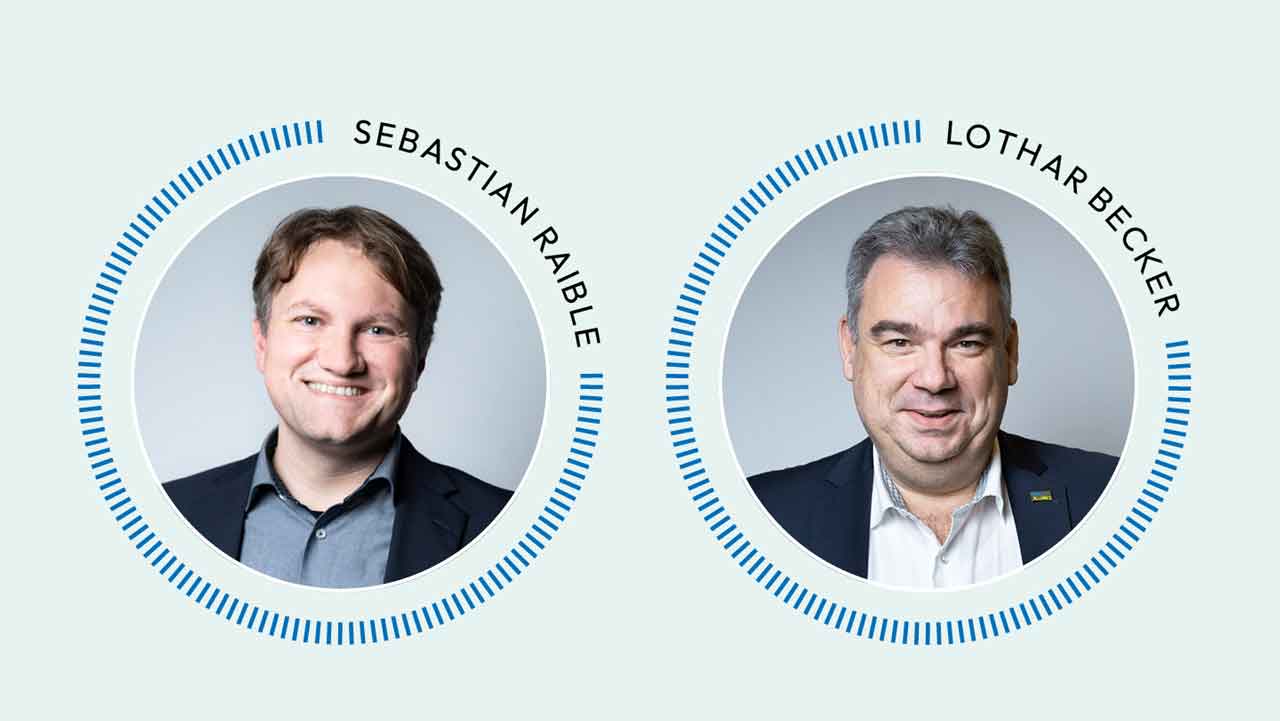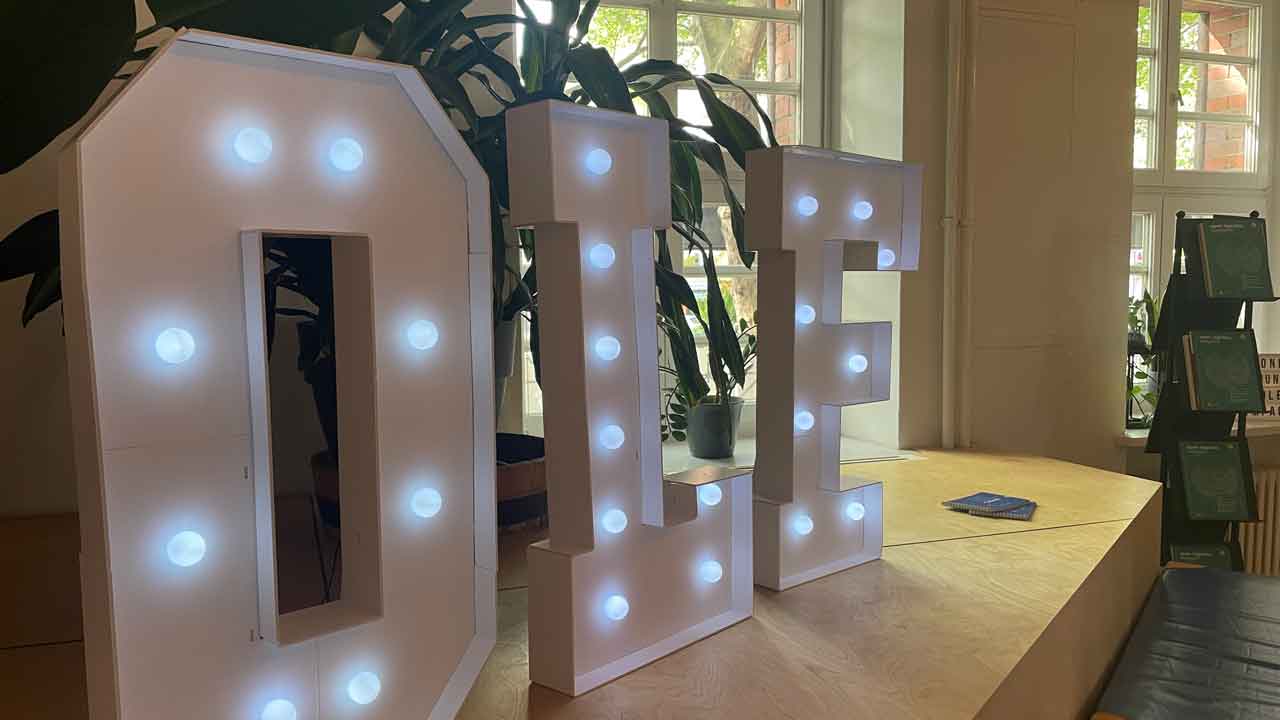More quality
The electronic consignment note (eCMR) is one element of Rhenus’ digital transformation strategy. Together with the members of the Open Logistics Foundation, we have successfully implemented a future-oriented solution and reached an important milestone on our path toward full digitalisation. By replacing the previously paper-based CMR document, the eCMR becomes a valuable data source and an enabler of efficient processes along the entire transport chain. Pilot projects have already demonstrated clear benefits: from scheduling to invoicing, manual efforts are reduced, throughput times decrease, and critical data—such as loading, recipient details, and digital signatures—are automatically transferred into the TMS system. High shipment volumes can now be processed more efficiently, invoices are generated faster, and the overall administrative workload decreases. This not only improves cash flow and liquidity but also creates transparency through instantly available data, supporting analyses and data-driven decision-making. Delivery times, waiting periods, and routes can thus be continuously optimised. For Rhenus, the eCMR plays a particularly important role in direct load traffic but also holds potential for the Rhenus Groupage Network. In the long term, we plan to further roll out the eCMR across our road freight activities in order to leverage the improved data quality for analyses and informed decision-making.

Boris Jeggle, Managing Director, Rhenus 4PL Solutions GmbH
Transparent supply chain
For Dachser, its commitment to the electronic consignment note (eCMR) is fundamentally about driving forward the digitalisation of the logistics industry. At the centre of this is the barrier-free collaboration of all actors along the supply chain – from the sender via the transport service provider through to the recipient. The OLF-eCMR now enables not only the integration of large companies into the system, but also that of small and medium-sized enterprises (SMEs) on an equal footing. In tests of the software with our partner Markant, it has become clear that the digital consignment note brings considerable relief for all parties in the transport chain – from drivers to planners through to the recipients of the goods. The successful pilot applications also confirm to us that with the open source approach, we can digitalise many more commodities, i.e. transport documents and information. In this way, the OLF-eCMR paves the way for a more networked, more efficient and more transparent supply chain, from which all parties will benefit in the long term.

Ingo Müller, Department Head Prototyping & Testing – Corporate Research & Development, DACHSER SE
Finally interoperable
Our goal at Markant is to fully digitalise all documents relevant to delivery in logistics and to provide them as structured, machine-readable data. With our cloud-based Digital Transaction File (DVA), we already enable suppliers, freight forwarders and retailers to use a central platform for end-to-end digitalisation, automation and real-time communication. The DVA is characterised by a high degree of innovation with a particular impact on process optimisation between industry and retail, and for this, it won the ECR Collaboration Excellence Award 2025. Processes such as delivery, complaint and status reporting are thereby handled efficiently, transparently and standardised at the position level. The DVA uses established standards such as the electronic standard format EDI, which replaces paper-based documents such as orders or invoices. With the OLF-eCMR, we have now been able to integrate a new standard, which once again ensures interoperability across company boundaries, creates process security, reduces effort and supports sustainable, future-proof supply chains throughout the entire industry. In this way, we can now offer our customers an improved product that creates even more tangible benefits.

Reiner Sailer, Lead Service Owner Supply Chain Services, Markant Services International GmbH
Real innovations
Open source components are often the starting point for real innovation because they are modular, flexible and open for integration. The OLF-eCMR is an example of this. Currently, the digital consignment note primarily serves as digital documentation. However, its potential is much greater and includes, for example, many more possibilities for automated and intelligent processes. As an IT company that co-developed the eCMR, we want to maximise the potential of digital consignment notes for our customers in logistics. We are working in two directions. Our developers are currently working on an application for drivers who only need to take a photo of a paper-based CMR. The data is automatically read out with the help of generative artificial intelligence and loaded into the eCMR system. This process, previously manual, is thus mapped more efficiently in digital form and also simplifies traceability. But the eCMR can also automatically trigger entire processes and value chains. Imagine the following: After the goods have been delivered and the eCMR updated, an AI agent automatically informs the ERP system, customer service and the accounting department so that the invoice for the delivery can be created. The OLF-eCMR shows how open standards enable real innovations – not through isolation, but through cooperation. When processes are intelligently networked and automated, companies gain major competitive advantages based on open source components.

Ulrich Buhrmann, Director Market Transport & Logistics, iteratec
New stages
For EDITEL, it has been a central concern from the very beginning to place security and reliability at the forefront in the standardisation of digital transport documents. Only if authenticity, integrity and traceability of a document are guaranteed can the necessary trust be created so that companies, as well as authorities, fully accept digital processes in cross-border transport. For us, standards are not a marginal condition, but the basis for a functioning, digital supply chain. Equally important in our view is interoperability: digital standards only deliver their full benefits when they are consistently adhered to and actively applied. This allows all parties to collaborate seamlessly within their existing systems, eliminating media discontinuity, costly interface projects, and the limitations of closed networks. This is exactly where we see our strength: together with the Open Logistics Foundation, EDITEL ensures that compliance and efficiency go hand in hand and that every partner can digitalise their processes without losing flexibility. Looking ahead, we already see new stages on the path to seamless digitalisation. Customising options, such as flexible PDF layouts or the targeted adaptation of content and process steps, open companies up to the possibility of embedding digital transport documents precisely into their established workflows. In the long term, we envision the next logical step in integrating further documents that extend the transformation beyond transport to the entire supply chain. In this way, we create the basis for fully seamless, legally compliant and interoperable documentation – for the entire order-to-cash process.

Thomas Höfler, Product Manager, EDITEL Group
More than transport
Since the publication of the industry-ready OLF-eCMR, the introduction of the digital consignment note has been gaining momentum rapidly and is developing into a European movement. In addition to the OLF members Rhenus and Dachser, which are among the most important and highest-revenue logistics service providers in Europe, small and medium-sized transport companies, which represent the largest share of the industry in terms of numbers, are also joining in rapid succession and at high speed. This accelerates the spread of the digital consignment note far beyond established supply chains. In the consultations that the Open Logistics Foundation regularly offers on the OLF-eCMR, it is no longer a question of “if”, but “how”. The development partners of the OLF-eCMR, for example, are then available for the concrete technical implementation in companies. The electronic seal is a frequent topic whose importance for digitalisation, not only in logistics, is often still underestimated. The seal implementation can also be used far beyond eCMR – wherever companies sign digitally.

Jens Leveling, Lead Software Architect, Fraunhofer IML; Technology Advisor, Open Logistics Foundation




